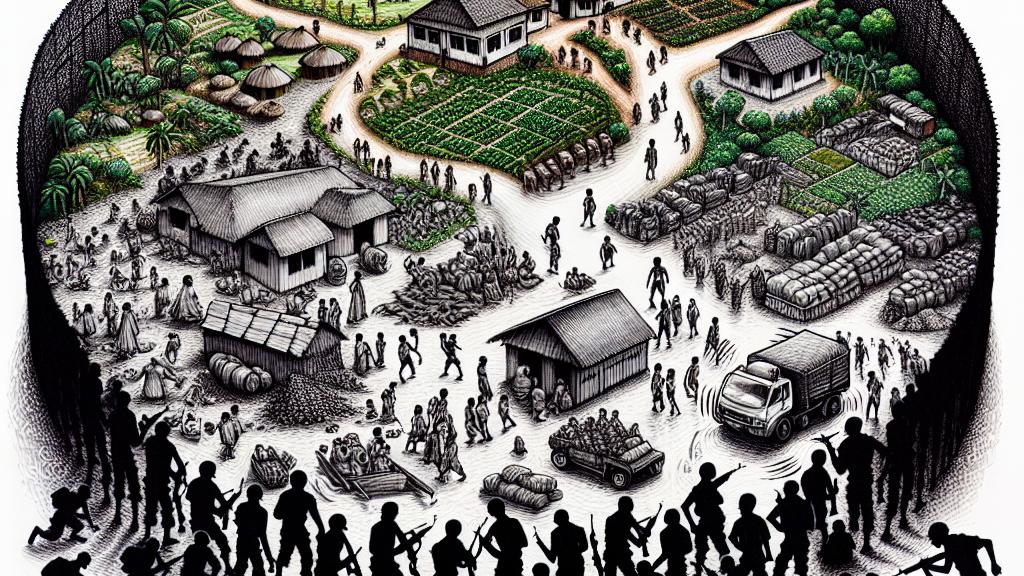Understanding the Jihadist Threat in West Africa
Overview
- Burkina Faso has transformed into a refuge and smuggling route for jihadist groups, significantly heightening security concerns for neighboring countries.
- The gripping account of a Ghanaian man named James reveals chilling recruitment tactics and the immediate dangers lurking in the region.
- Escalating diplomatic tensions between Ghana and Burkina Faso showcase how instability in one nation can ripple across borders.

The Growing Threat to Ghana
In West Africa, particularly in Ghana, the threat posed by jihadist groups like Jama'at Nusrat al-Islam wal-Muslimin (JNIM) is increasingly alarming. These militants have not only found safe haven in Burkina Faso but have also extended their influence across the border, making the situation precarious for Ghanaians. Consider this: over 15,000 people have fled the violence in Burkina Faso, seeking refuge in Ghana. This movement illustrates how conflict in one country can create a ripple effect, jeopardizing safety and stability in neighboring regions. It’s a stark reminder that even a peaceful nation can face serious threats from turmoil next door.
Chilling Personal Accounts and Recruitment Strategies
Let's delve into a haunting story shared by a man named James. Captured by jihadists, he spent time in their camp, where fear and indoctrination were rampant. During his ordeal, he witnessed unsettling sights, including children being trained to become suicide bombers. The pressure to join their ranks was immense; James was seduced by the prospect of power and authority. Imagine being offered a chance to lead a battalion, albeit a group steeped in violence! His release came only after a desperate plea, claiming he had a sick child waiting for him at home. However, he was coerced into promising to recruit others in Ghana, highlighting the extent to which these organizations will go to expand their reach. This story paints a vivid picture of the battle between innocence and recruitment tactics employed by violent groups.
Heightening Tensions Between Ghana and Burkina Faso
Currently, the relationship between Ghana and Burkina Faso is fraught with tension, particularly over accusations that Burkina Faso has engaged Russian mercenaries. Such claims, made by Ghana's president, have ignited a diplomatic firestorm, underscoring the fragile nature of international relations amidst insecurity. Burkina Faso's swift response to these allegations showcases the complexities of geopolitics in this volatile region. As nations grapple with these evolving dynamics, the involvement of external actors like the Wagner Group introduces new layers of challenges, complicating an already intricate security landscape. This situation serves as a wake-up call, revealing how political tensions can easily spiral into security threats, necessitating collaborative efforts to restore stability.

Loading...